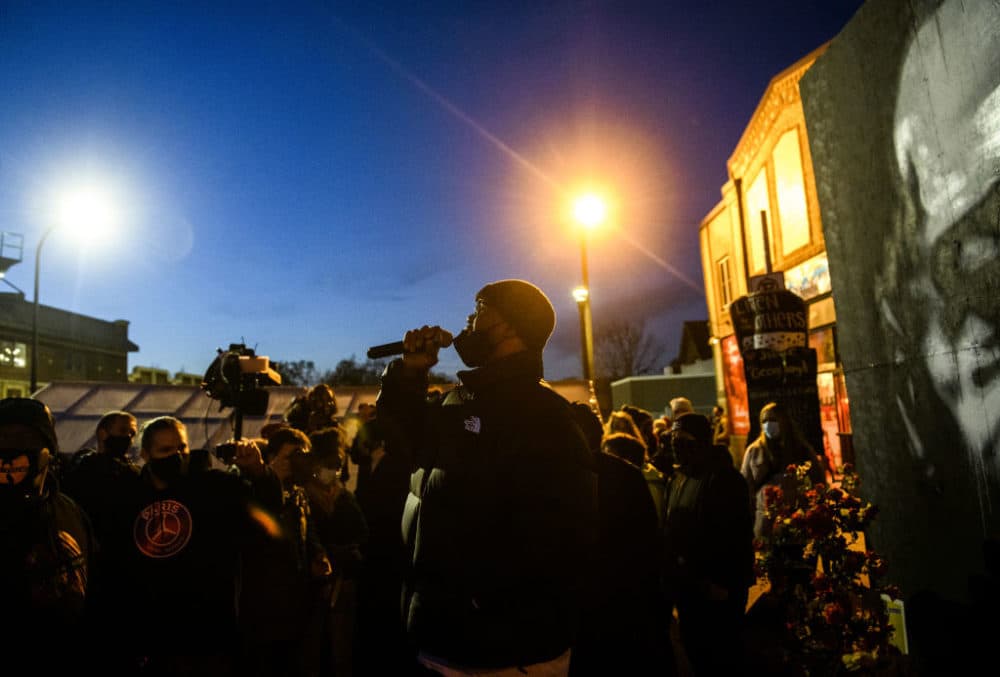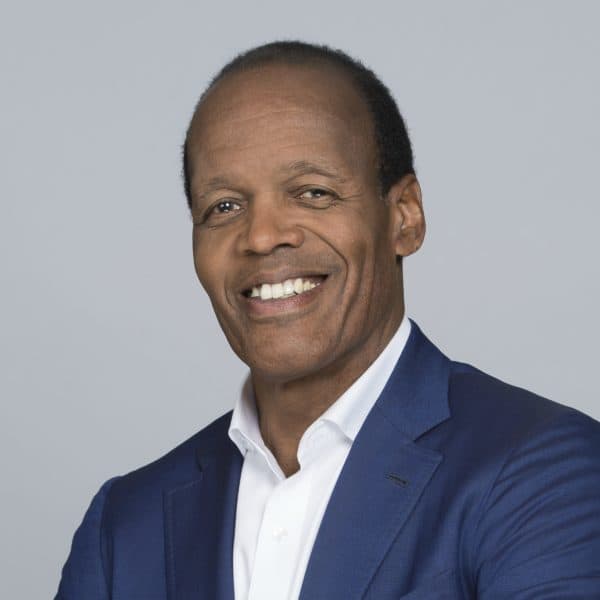Advertisement
Commentary
I'm Not Celebrating The Chauvin Verdict

As the world watched, a jury rendered its decision in the trial of Derek Chauvin, who was charged with second-degree unintentional murder, third-degree murder and second-degree manslaughter. He could have been convicted on all of the charges, some or none.
He was found guilty on all three charges. Some celebrate the verdict. Others are disappointed. Some are indifferent — perhaps the worst cut of all.
I am not celebrating.
My fear is that congratulatory celebration may lead to complacency — a complacency that does not fully acknowledge that George Floyd's death is not new. There have been and will be many George Floyds in our future.
This we know: There will be more killings before Memorial Day, the first anniversary of his death.
Martin Luther King Jr. famously once said: "Silence is betrayal." We cannot be silent and there are times when we must tell the truth.
What we most need next is a more widespread acknowledgment of the structural racism that undergirds the killing of unarmed men and women of color in our country. Of course, police reform is a very good place to start. But what we need more is a profound cultural shift, an awakening that will not be achieved until we understand — in our heads and our hearts — the racist economic, political and social structures that make these killings possible.
This we know: There will be more killings before Memorial Day, the first anniversary of his death.
So, let us begin with us. Let us acknowledge beginning today that we, all of us — including me — are deeply implicated in this terrible truth.
Eleven months ago, I wrote in an essay, “America is on fire.”
“We mourn George Floyd. But let’s not forget the other George Floyds, of which he is but one:
Ahmaud Arbery was jogging when white vigilantes pursued him in their pick-up trucks, shot and killed him. A Harvard-educated black birder, Christian Cooper, was bird-watching when a white woman walking her dog weaponized the lynching trope in an attempt to summon police.
Do you remember Trayvon Martin or 12-year-old Tamir Rice or Sandra Bland or Philando Castile or Eric Garner or Freddie Gray or Botham Jean or Breonna Taylor?
The deaths of unarmed Black men and women at the hands of police continue apace — even as the Derek Chauvin trial was proceeding to its conclusion: Daunte Wright, a 20-year-old father, was killed in a recent traffic stop in Brooklyn Center, Minnesota by a veteran police officer, who said she had mistaken her taser for the gun she held in her hand. Body camera footage shows a 13-year old Adam Toledo as he was shot to death by a police officer — even after he had obeyed the officer’s command to “show me your hands. Drop it. Drop it.” The officer shot, killing the boy as he turns, doing exactly what the officer had instructed, his hands raised in the air.
Advertisement
When will those of us in places of power, privilege and influence, in our thunderous voices, exclaim to the heavens above: 'Enough. It is enough.'
These deaths are a reminder of the other pandemic that plagues these United States: the fear of Black people, but especially the fear of Black men and boys in public spaces. A fear of their bodies. Sadly, there is no vaccine yet discovered and manufactured to eradicate it.
When will it stop? When will those of us in places of power, privilege and influence, in our thunderous voices, exclaim to the heavens above: “Enough. It is enough.”
I hear the somber and sorrowful voices of the past (and of the future) calling to me about this disease that ravages our country, desecrating the promise of America, blaspheming its much-lauded beauty.
These deaths unveil the deep and long-standing social and economic racialized disparities that exist within this land of plenty.
We see — with spirits made heavy by human suffering — the deep fissures of race and poverty that, like specters at dawn, haunt our nation’s conscience. Who among us can sing today without bitter irony the song of America’s beauty?
My country 'tis of thee
Sweet land of liberty;
Of thee I sing …
Who can sing this song with pride as we watch in horror — over and over again — the legions of Black men and boys, their bodies torn asunder by fear and hate?
This is a time for reflection and resolve, of true bravery and courage. A time to confront, head-on, hate, fear and ignorance in all of their various forms and manifestations.
These killings must stop.
As U.S. Rep. Elijah Cummings reminded us while he was still among us: “C’mon now, we’re better than this.”
Yes, we are. Yes, we must be.
Editor's note: Lee Pelton is the president of Emerson College. The essay below was originally written as a letter to the Emerson community. It is reprinted here with his permission, edited for brevity, clarity and style.
